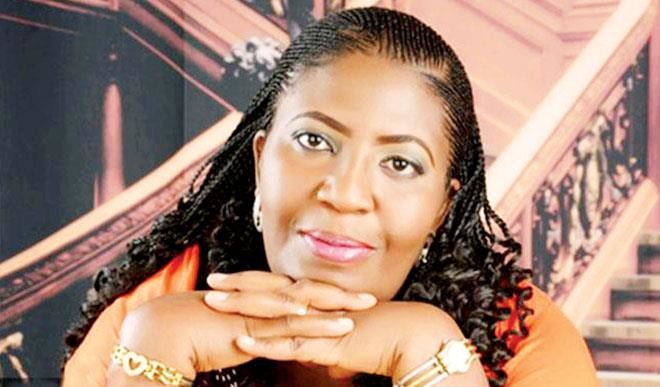Obi-Obasi sizzles at ALS Bookjam
The Abuja Literary Society held its monthly Bookjam, featuring a published writer. For April, Children story writer and NLNG Prize shortlisted author and publisher, Chinyere Obi-Obasi was full of life as always. Daily Trust reports. Imagine you are shortlisted for a lucrative prize, alongside six other writers. Imagine the sum of $100, 000 (N19,899,162) […]


The Abuja Literary Society held its monthly Bookjam, featuring a published writer. For April, Children story writer and NLNG Prize shortlisted author and publisher, Chinyere Obi-Obasi was full of life as always. Daily Trust reports.
Imagine you are shortlisted for a lucrative prize, alongside six other writers. Imagine the sum of $100, 000 (N19,899,162) at stake. Imagine the anxiety you feel, because even though you crave to win and rake in all that money, you know the other writers have as much chance as you. And then imagine your father, who had taken it for granted that you would win the prize already, arriving with a list of all the people in the village you are supposed to do something nice to once the prize money comes in.
Well, that was what children story writer, Chinyere Obi-Obasi had to deal with when she was shortlisted for the Nigerian Liquefied Natural Gas (NLNG) Prize in 2011.
As a guest of the Abuja Literary Society, (ALS) April 2016 Bookjam, Obi-Obasi, as garrulous as ever, told all.
“Come and see expectations,” she said to a full house that had turned up at the Sandralia Hotel venue of the event. “Long lost friends who hadn’t called me in ages suddenly found my phone numbers and a relative decided to remind me of an aunty’s flask I had broken when I was a child and how I needed to replace that flask if I won the prize.”
Sadly, Obi-Obasi didn’t win the prize, which went to Adeleke Mainasara Adeyemi’s ‘The Missing Clock’.
But for Obi-Obasi, the experience of being shortlisted for the prize was something she had enjoyed and has been wearing proudly like a laurel.
“That time, I would wake up in the night and say to my husband, do you know what this means? Your wife is no longer an ordinary writer.”
Even without the nomination, Obi-Obasi is far from ordinary. She dominates space and discourse and is generous with advice on writing, on life, on opportunities. She is not one to hide in a crowd. And she has had the courage to pursue her dreams, quitting her job in a bank to focus on her creativity. Now she is taking acting lessons, is practicing as an event compere and is busy churning out books, blog posts, all while running Grower Press, the publishing house she set up with fellow writer Kenechi Uzor.
However, in 2015, Obi-Obasi could not repeat the heights she reached in 2011, when her new children story, ‘Chijike’, as well as all the other works entered for the NLNG Prize, didn’t make the grade.
The judges said none of the works deserved to win the prize, however, 20 of the most “promising” authors were invited to a workshop in Lagos to properly arm them with the skills needed to write better stories for children.
“Even if they said none of the entries merited the prize, at least they could have mentioned the ones that had promise,” Obi-Obasi said. “At the workshop, there was a student from the university; there were some other young people there who could have been encouraged if their works had been publicly mentioned as being promising.”
Whereas she thinks workshops have their usefulness, Obi-Obasi has other ideas about writing.
“Writers should not ape anyone because you need to be original and aping someone limits you,” she said, “Writers need to read voraciously. That is the only way to find your voice.”
But perhaps drawing from her experience and the drama that characterized her two shots at the NLNG prize, Obi-Obasi’s most poignant advice on the night was “writers should not write for prizes.”
“If you write for prizes and don’t win them, you will be disappointed. Just make an effort to write a good book you will be proud of regardless of anything,” she said.
She read a humorous excerpt from her book, Chijike, in which two boys are trying to navigate life in a boarding school.
The night’s event was garnished with some delightful poetry by the poet, Hajjo Isa, who read a new work, Common Ground. While Ekute Stone announced himself on the scene with a delectable fable in rhyme which he titled ‘The Story of the Hawk and the Snake’.
Chinedu Obi-Obasi, Mrs Obi-Obasi’s daughter, a promising budding writer herself, read a short story about a girl and her love for the library, which was received with warmth, smiles and a round of applause from members of the audience.
